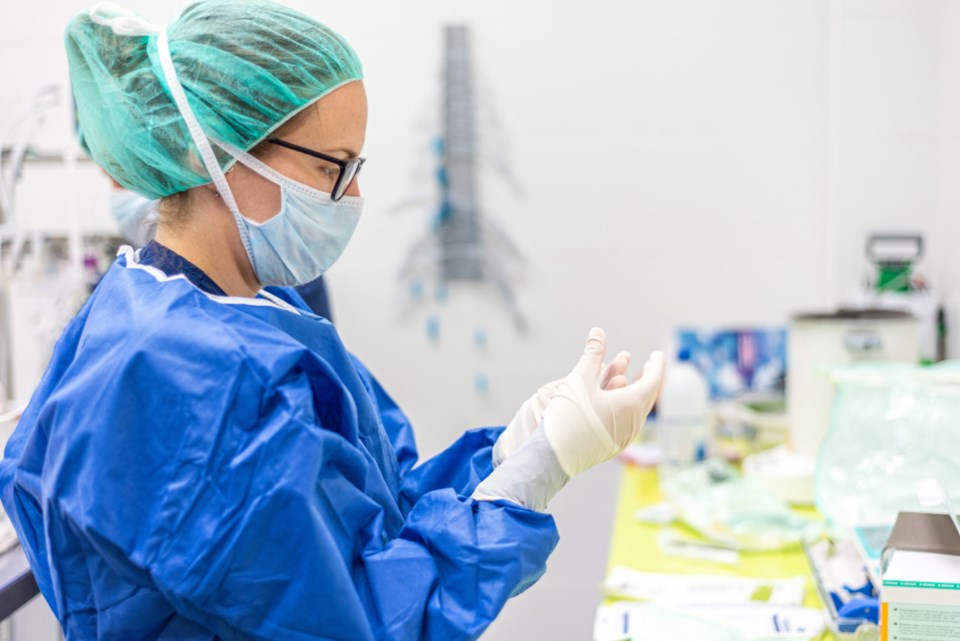Queen's Park announced Tuesday it plans to provide COVID-19 vaccines to health-care workers and essential caregivers throughout southern Ontario between now and Jan. 21, but as of yet, there are no firm details on vaccines for Northern Ontario health-care workers.
Details of the vaccine programs were provided at an hour-long teleconference Tuesday, where provincial officials spoke at length about "the priority regions" of Toronto, Peel, York and Windsor-Essex.
The briefing also outlined that additional doses of vaccine are currently being shipped to Ontario and that a ramping up will occur in the next few weeks.
A Ministry of Health (MOH) official providing background information to reporters said during the week of Jan. 4, vaccines will be distributed by one public health unit and 18 hospitals.
Next week, the week of Jan. 11, that will be stepped up to 22 hospitals and one public health unit. By Jan. 25, the vaccine effort will have 26 hospitals and two public health units.
The official said the distribution model could change on Wednesday by adding more distribution sites by moving the Pfizer beyond the initial delivery site. This takes a special effort requiring extreme cold refrigeration units that can hold the vaccine safely for several days.
"As you can imagine, being able to move the Pfizer-BioNTech vaccine means that we can move it to a number of areas,” said the ministry official.
“It could be moved to a long-term care home and delivered directly there. It could be moved to additional sites, thereby expanding the footprint and the throughput that is available.”
It was revealed that so far, 44 vaccine sites have been established, with more than 50,000 people vaccinated with the Pfizer-BioNTech vaccines.
The Ministry of Health said this includes 26,000 vaccines for health-care workers in long-term care homes and retirement homes and more than 20,000 vaccines for other health-care workers and roughly 1,000 vaccines for residents.
The update also revealed that 53,000 doses of the Moderna vaccines were delivered to Ontario in the last week of December. Another 56,000 doses are expected to arrive Jan. 11. After that, deliveries are expected every three weeks.
The plan is to provide Moderna vaccines to residents of long-term care homes in Toronto, Peel, York, and Windsor-Essex, as well as to any LTC home staff who have not yet been vaccinated. The goal, said the source, is to have all these vaccines administered by Jan. 21.
"They're looking to expand and provide the Moderna vaccine to an additional three public health units in the week of Jan. 11," said the MOH source.
Later in the briefing, a reporter asked the ministry to identify which additional public health units would be receiving the Moderna vaccines.
The source said those three health units have not yet been informed.
"We are speaking with the public units right now. We want to make sure they know first. We will let you know as soon as we can," said the official.
The MOH has also made plans to provide vaccines to several smaller and remote First Nations communities along the James Bay coast, not because those communities are in any dire need, but more because the smaller villages have only the most basic medical treatment stations.
The province said it is currently working with Indigenous leaders to finalize a plan for the rest of Ontario’s Indigenous communities and urban populations. The ministry said it is also working with ORNGE air ambulance service to deploy the vaccines to remote fly-in communities. The ministry said up to 180 health-care workers have been vaccinated and will be deployed to administer the vaccines in the remote areas.
At an earlier news briefing, retired general Rick Hillier, who heads the provincial vaccine task force, said the goal is to ensure that health-care workers and vulnerable residents of Ontario are vaccinated by the end of March, which will mark the end of Phase One.
After that, in Phase Two, during April, May and June of 2021, all other residents of Ontario will be invited to get vaccines. Both the Pfizer and Moderna vaccines are two-dose medicines, meaning that once the first dose is administered, recipients will be asked to come back in three or four weeks for their second dose. By that time it is expected that several pharmacies in Ontario will be administering the vaccine.
Len Gillis is a Local Journalism Initiative reporter at Sudbury.com, covering health care in Northern Ontario. The Local Journalism Initiative is funded by the federal government.
